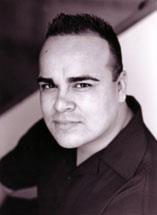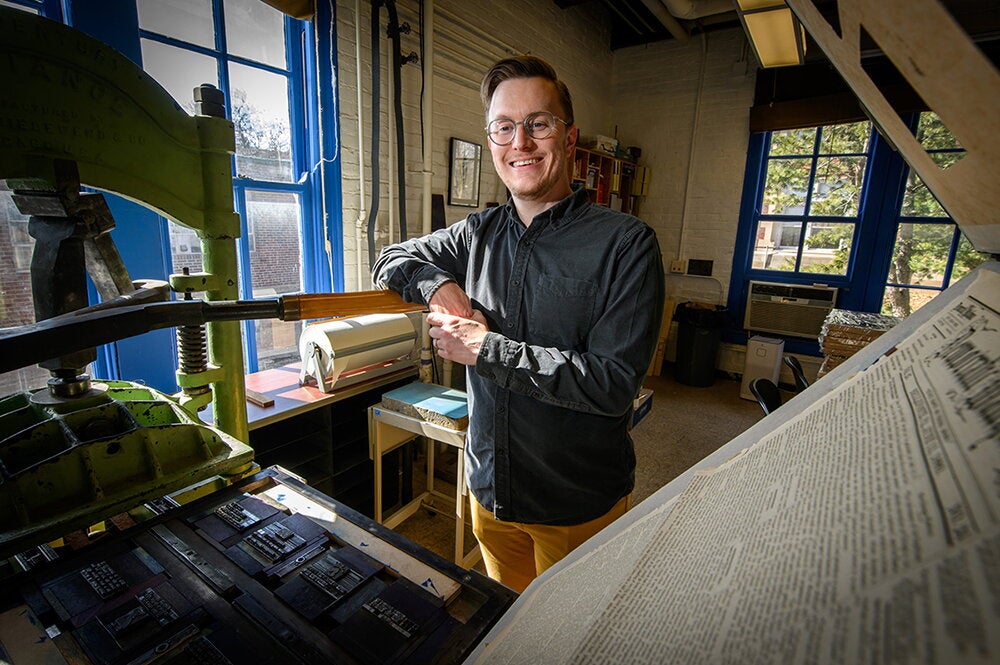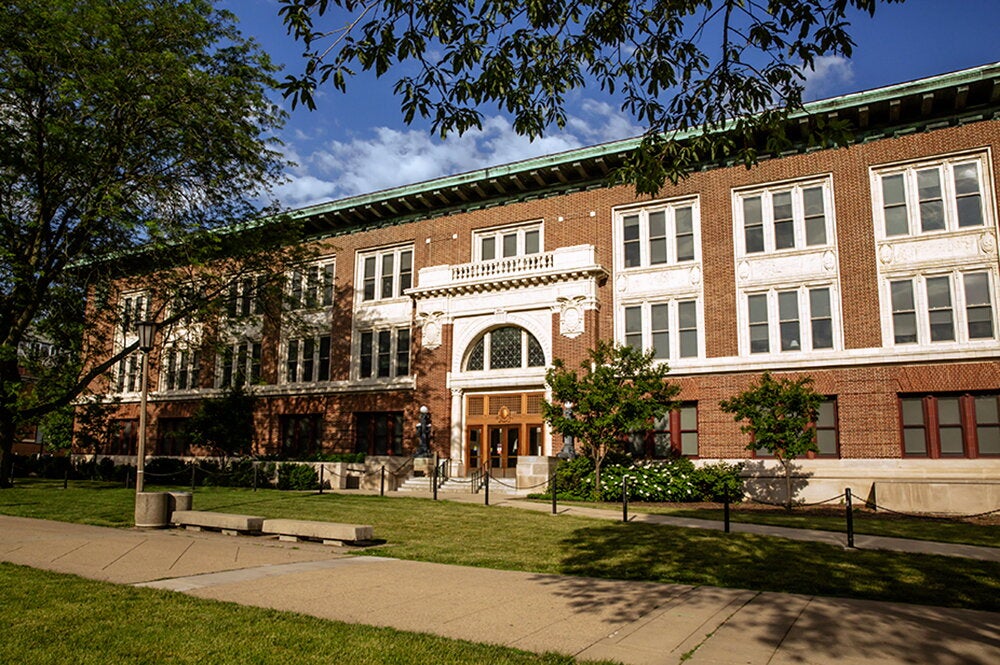

Often in the classrooms, daycare centers, and libraries that Rigoberto Gonzalez visits around the country, the LAS associate professor of English will see in a child's young face his own unlikely journey. After all, the middle-class life Gonzalez now inhabits in literature and academia is only one brief generation removed from the southern California agricultural fields in which he and his family labored for many years. Those years of struggle are never far from the writer's thoughts.
"I grew up working in the fields. As soon as school let out for the summer we were out there the next day as a family picking grapes. I hated every minute of it! I hated getting up at five in the morning, being out there at six, tolerating that heat until three in the afternoon, sometimes later.
"My grandfather would tell me if you don't study, if you don't stay in school, that's what you're going to do the rest of your life. It made me want to be something different. I did not want to work in the fields. I knew there was a better world for me out there." The message from his grandfather was received loud and clear, and today Gonzalez delivers the same message to Latino children in person and on the printed page.
Gonzalez, the author of two children's books, a novel, and a collection of poetry, was born in the United States but lived in Michoacán, México, between the ages of two and 10. He is the only Latino contributing editor of Poets & Writers magazine, a member of the National Book Critics Circle, and one of this year's recipients of a coveted National Endowment of the Arts writer's fellowship. Gonzalez' status in the world of letters has created a demand for appearances in Latino communities, where children look to him for inspiration and mentoring. It is a role that is quite familiar for Gonzalez.
As a struggling writer, Gonzalez worked as a literacy teacher and Mexican folk dance instructor for many years with children in after-school programs in Arizona, New Mexico, and Brooklyn. One of methods Gonzalez employed to interest kids in literature was to use children's books. When he found that the books rarely dealt with children's realities he decided to write his own books. With the inspiration and encouragement of his own teachers-Chicano children's book authors Gary Soto, Francisco Alarcon, and Pat Mora-and drawing from his own experience, Gonzalez soon penned two bilingual books. Soledad Sigh-Sighs/Soledad Suspiros is about a latchkey girl in need of guidance who cannot attend an after-school program in her neighborhood and Antonio's Card/La Tarjeta de Antonio portrays a boy raised by same-sex parents. Another book is in the works, this one about a mentally disabled girl.
"My mission as writer is to bring invisible populations to visibility," Gonzalez says. "There are so many groups that are kept invisible because the system's not working for them, their government's not working for them, or we as a society don't want to see them. So that's what I'm doing: I'm contributing to their visibility."
The writer's connection to children in need is also a re-connection to his own childhood roots of poverty and marginalization. Gonzalez' mother never got beyond second grade, his father never advanced beyond first grade, and his grandparents never learned to read or write.
"As a farm worker's son, I come from one of those invisible populations. I think growing up with that understanding that we were a community that had second-class status in this country has made me a little more sensitive to my conditions. It certainly inspired me to overcome them."
No matter how much visibility Gonzalez now enjoys, he still feels a strong sense of urgency to be a mentor.
"My family taught me well. That's why I'm a huge advocate for Latino writers in this country. It's important to me to be a role model, to say, 'look, it's possible.' That's one of our distinctions in the Chicano community. In just one generation you can go from working-class family on welfare, to me, making a pretty nice salary at the University of Illinois. It is the American Dream."


